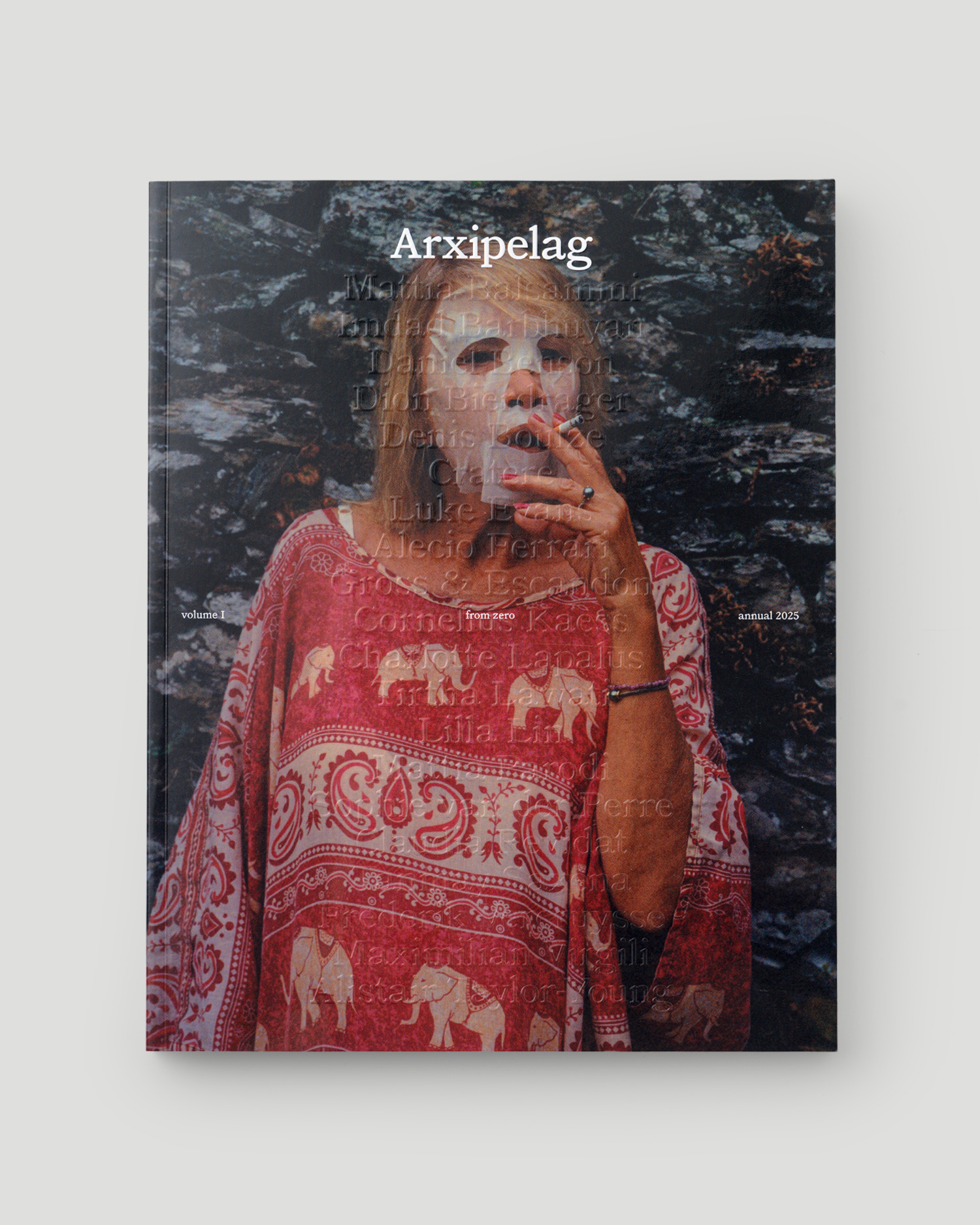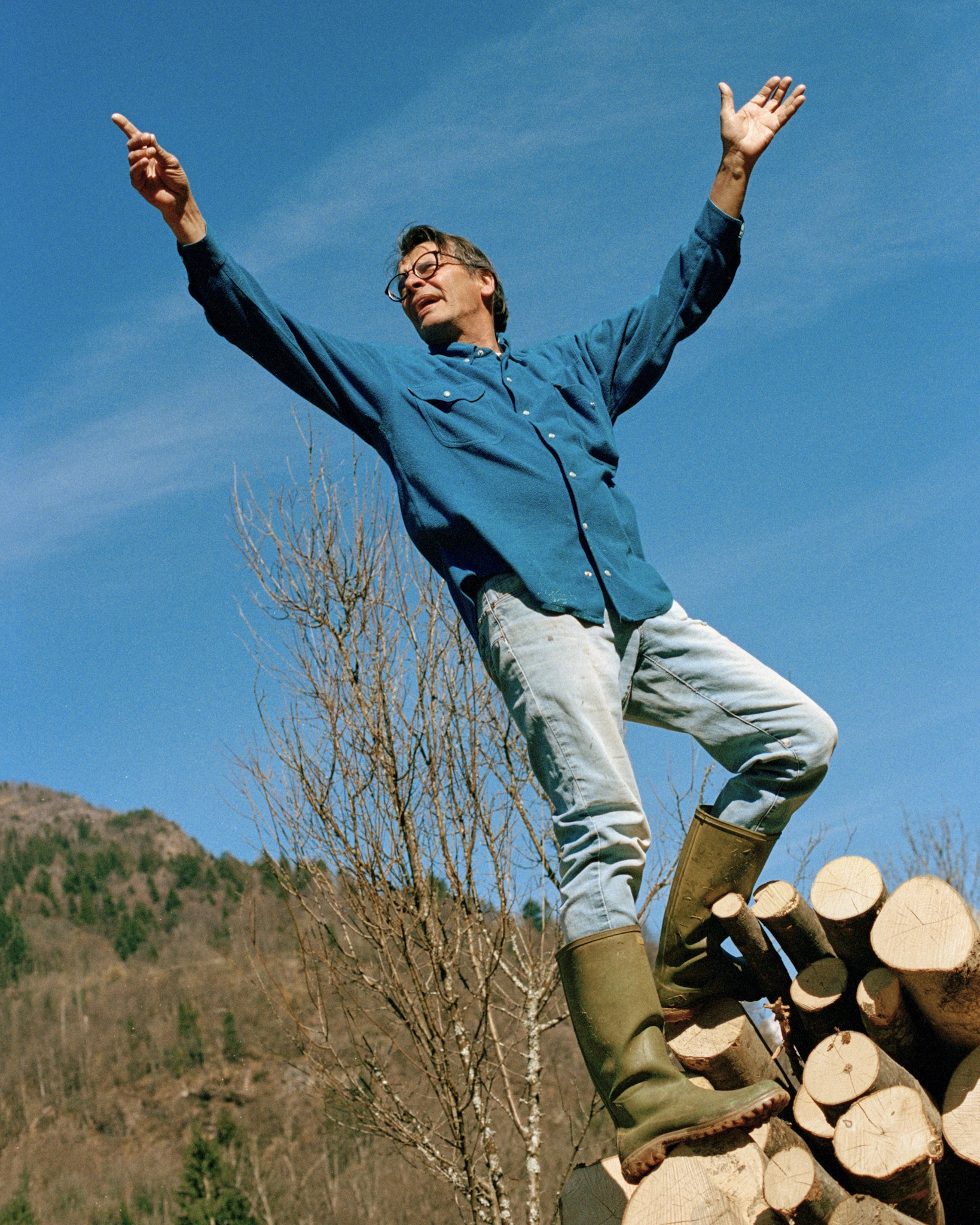HARVESTING THE TIDES
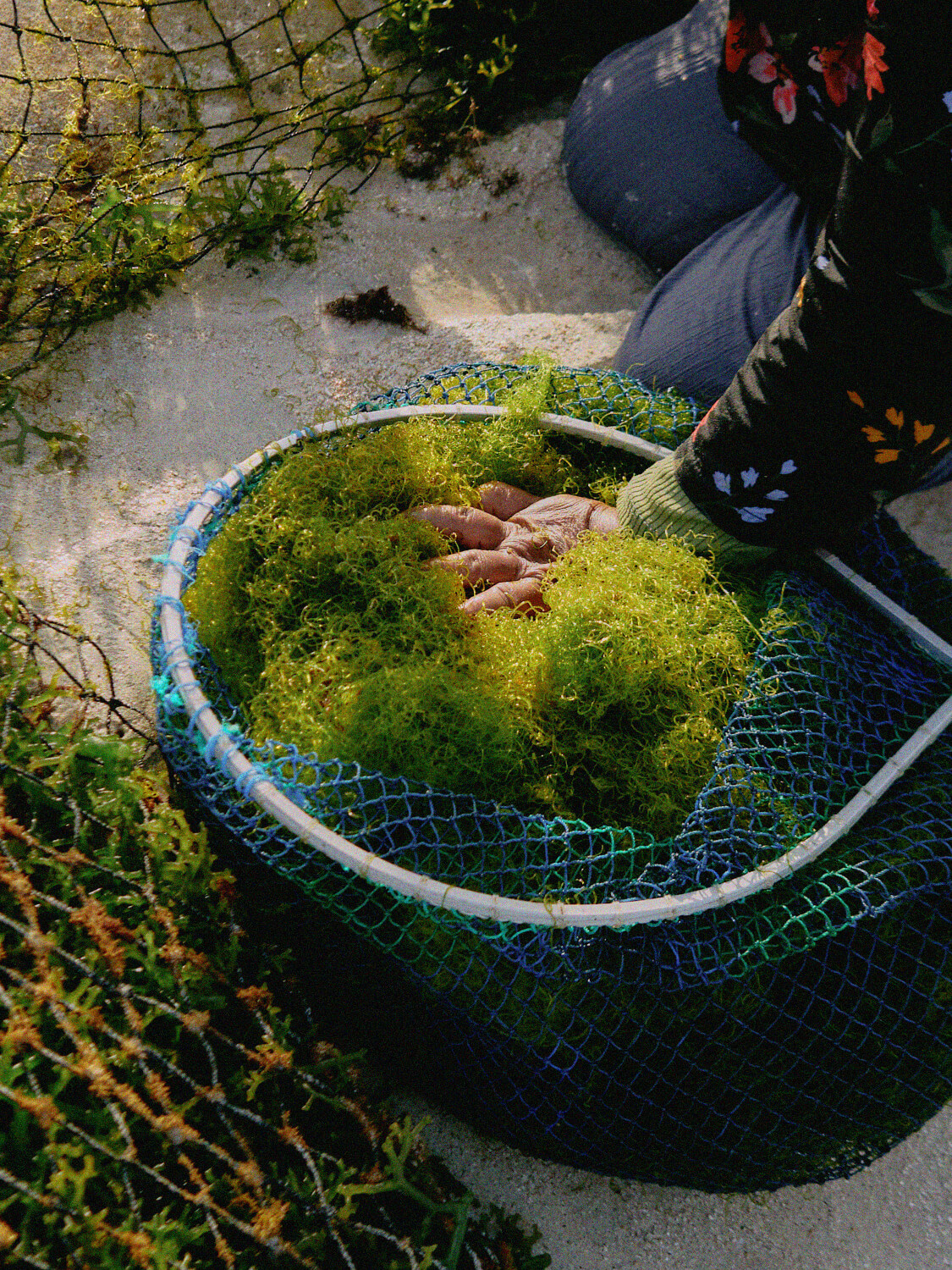
Rachele Daminelli
Moved by her interest in ecology and sustainability, Rachele Daminelli travelled all the way to Indonesia to document the work of a community of seaweed farmers.
Globally, seaweed farming is expanding, particularly in East Africa, the Philippines, and Europe, as demand rises for its use in food, cosmetics, and biodegradable materials. With the potential to restore marine habitats and reduce ocean acidification, sustainable seaweed farming could become a key solution to environmental and economic challenges.
On Nusa Lembongan, a small island off Bali’s coast, seaweed farming is entirely dependent on the tides. Since its introduction in the 1980s, the practice has sustained local livelihoods, with farmers wading into the sea during low tide to plant and harvest. Work continues at odd hours—sometimes late at night or under the midday sun—dictated by nature rather than a fixed schedule.
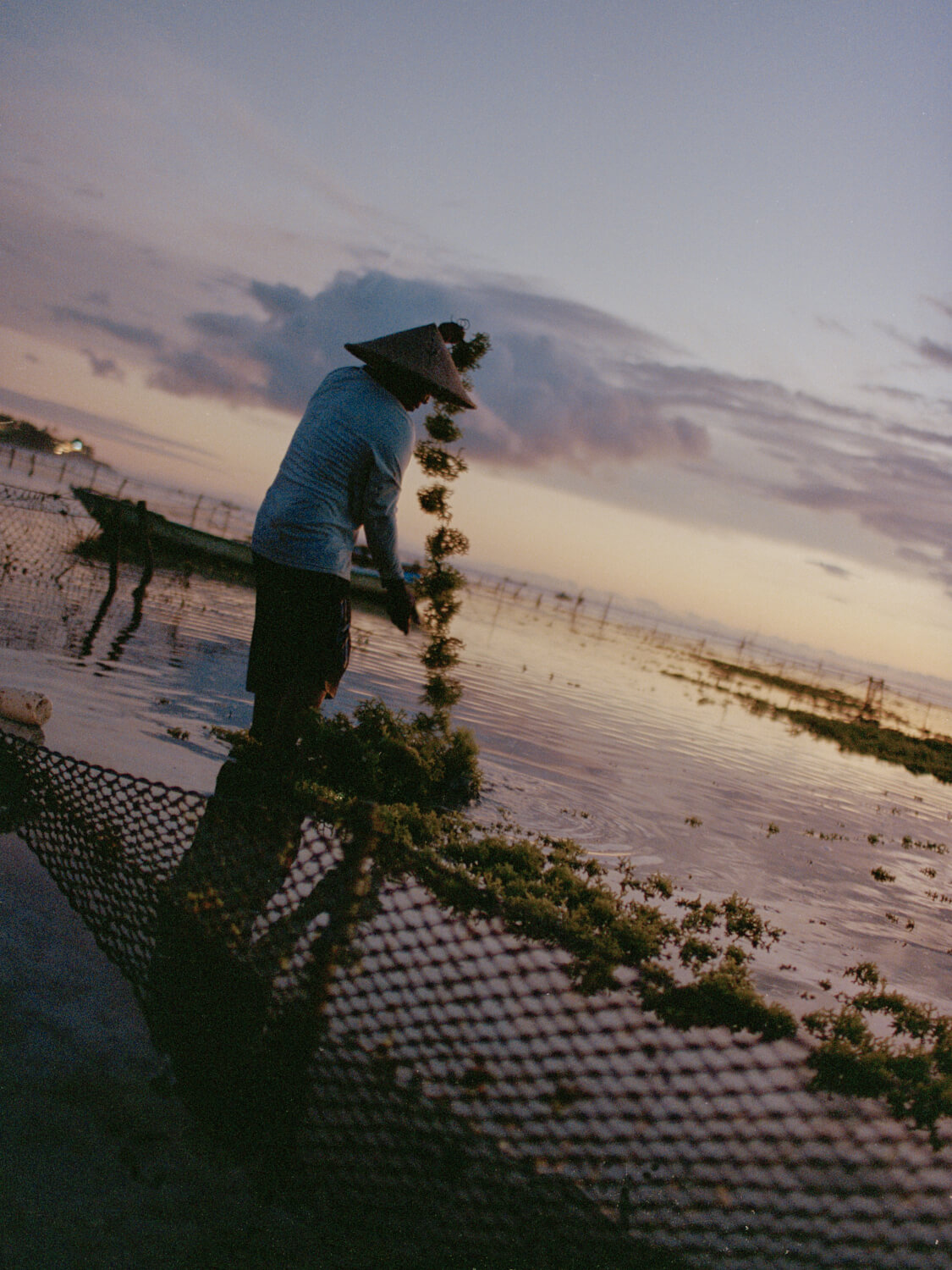
Women dominate the trade, and despite its low profit margins, seaweed farming provides a reliable income and requires no pesticides or freshwater. It absorbs carbon dioxide, reducing greenhouse gases, and acts as a natural filter, improving water quality by absorbing excess nitrogen and phosphorus from agricultural runoff. Seaweed farms also create habitats for marine life, fostering biodiversity and helping to restore degraded coastal ecosystems.
As global interest in seaweed-based products grows, sustainable farming on Nusa Lembongan could play a larger role in environmental conservation and economic stability for coastal communities.
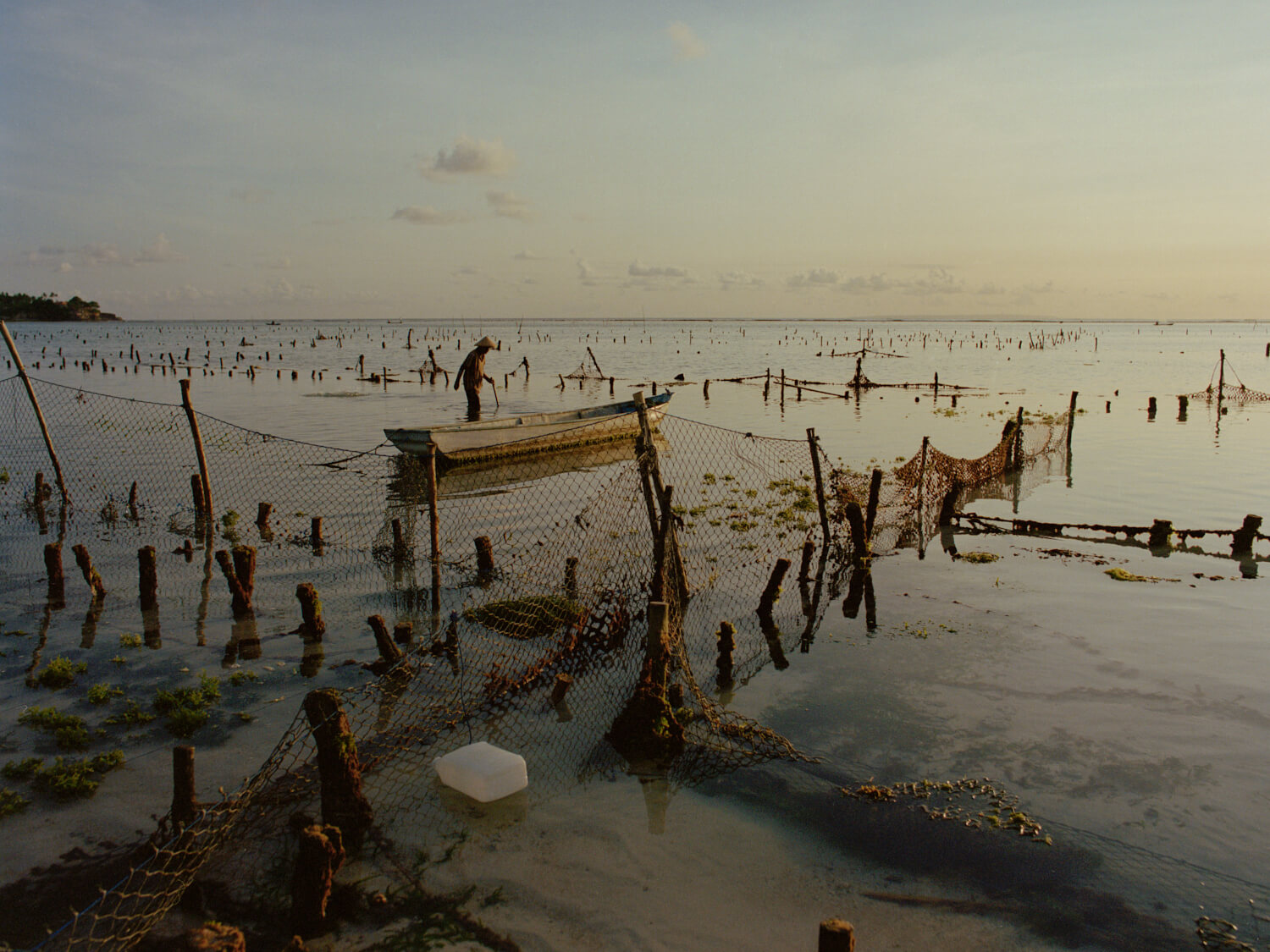
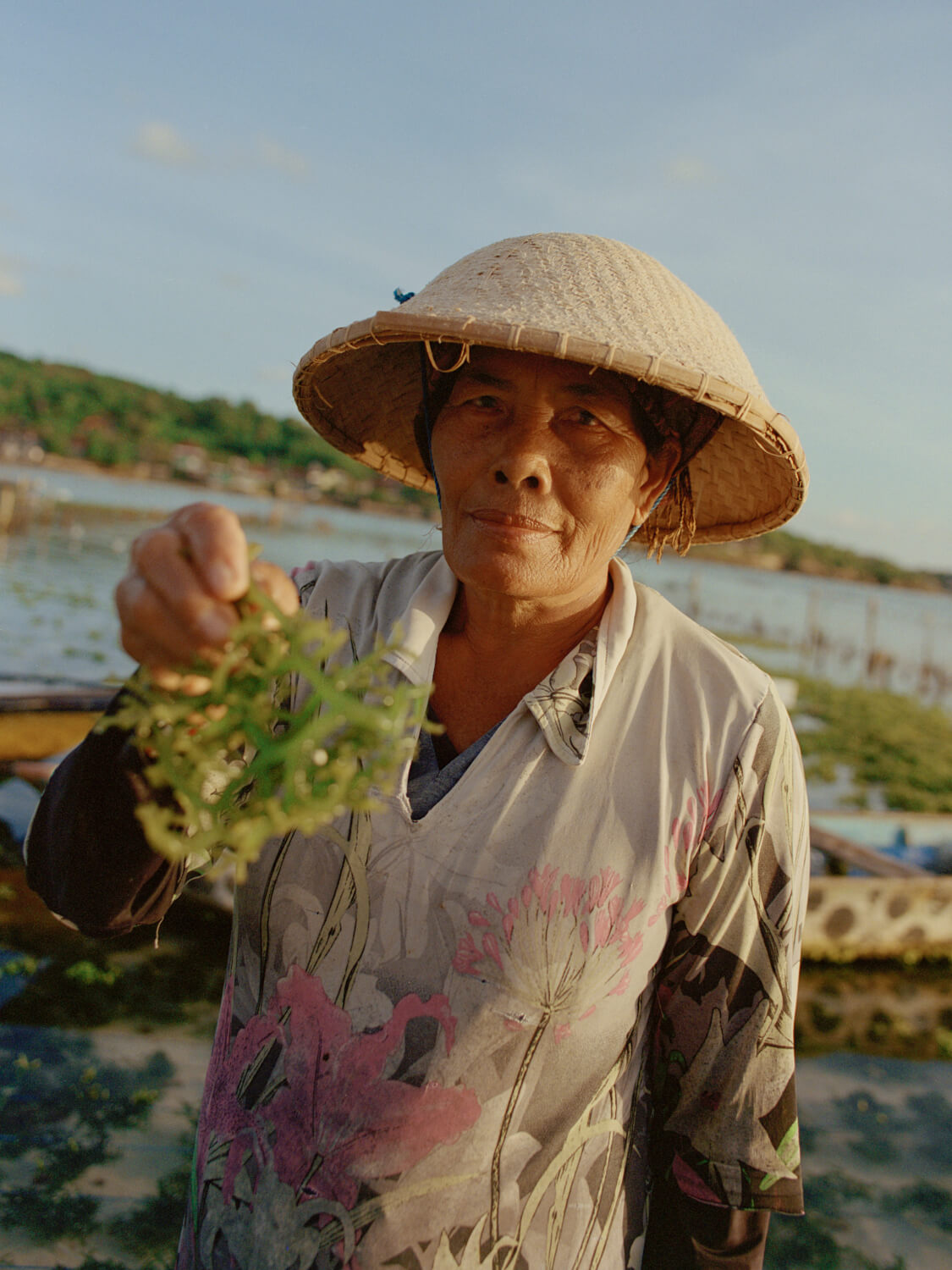
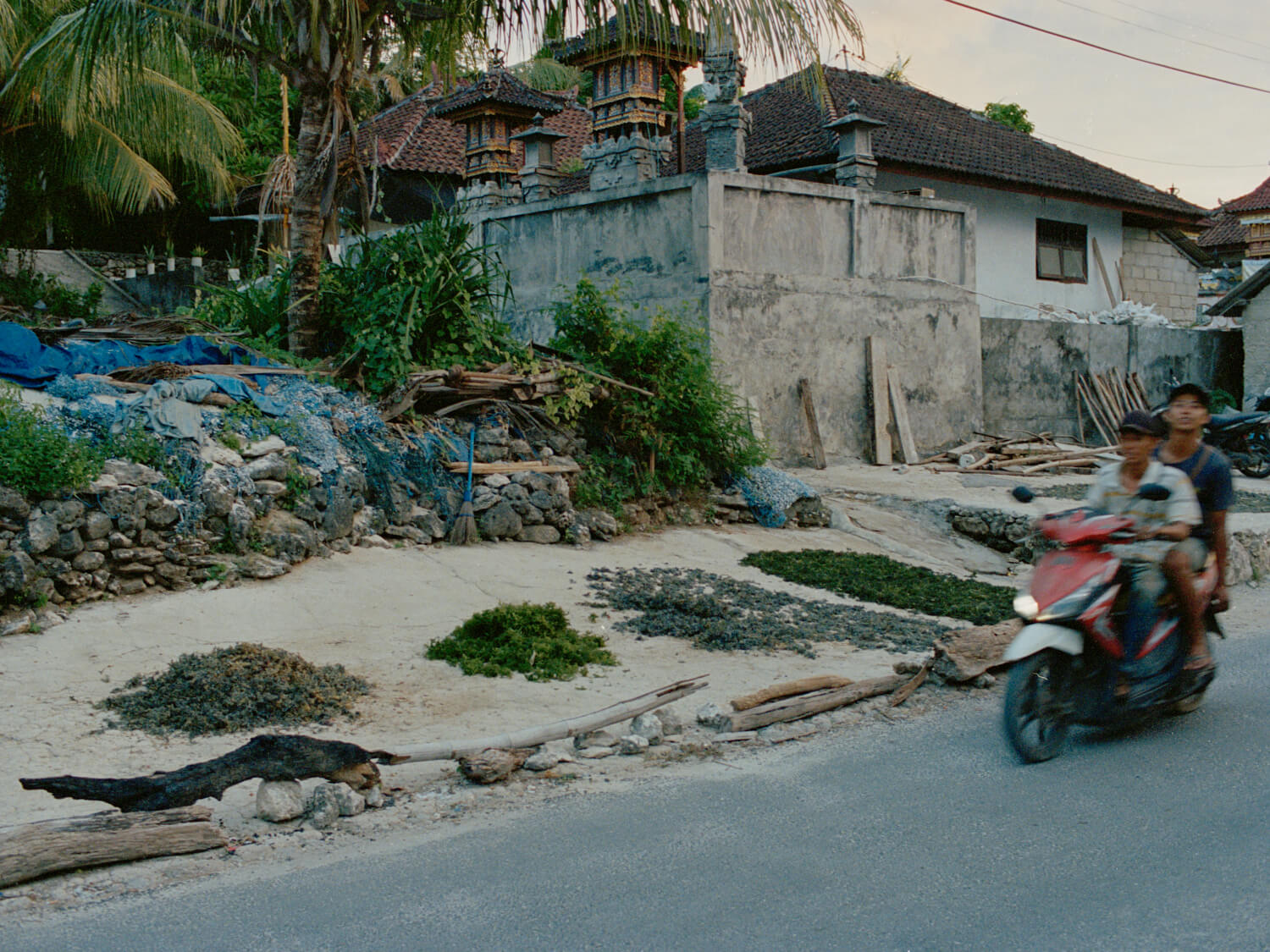
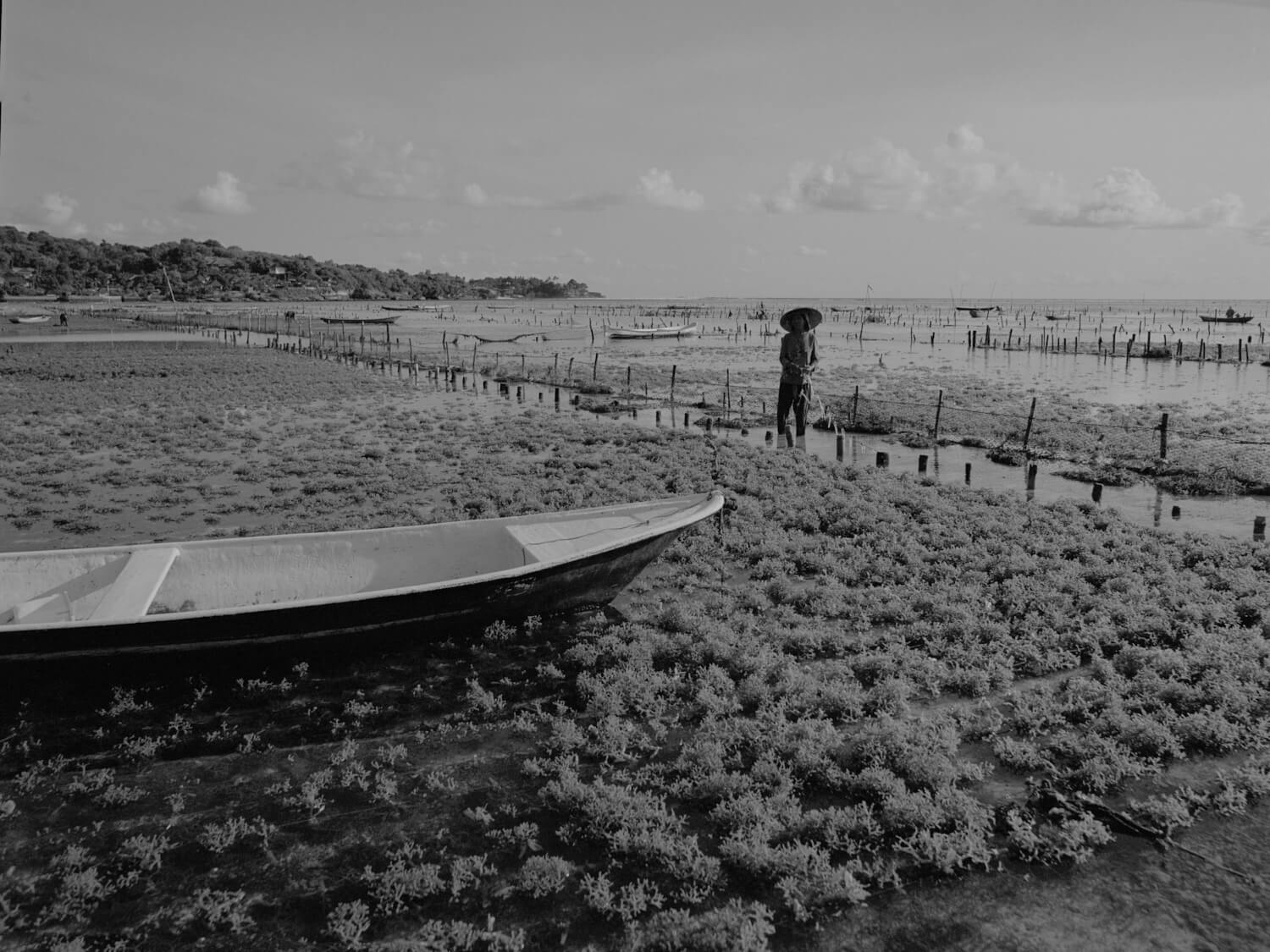
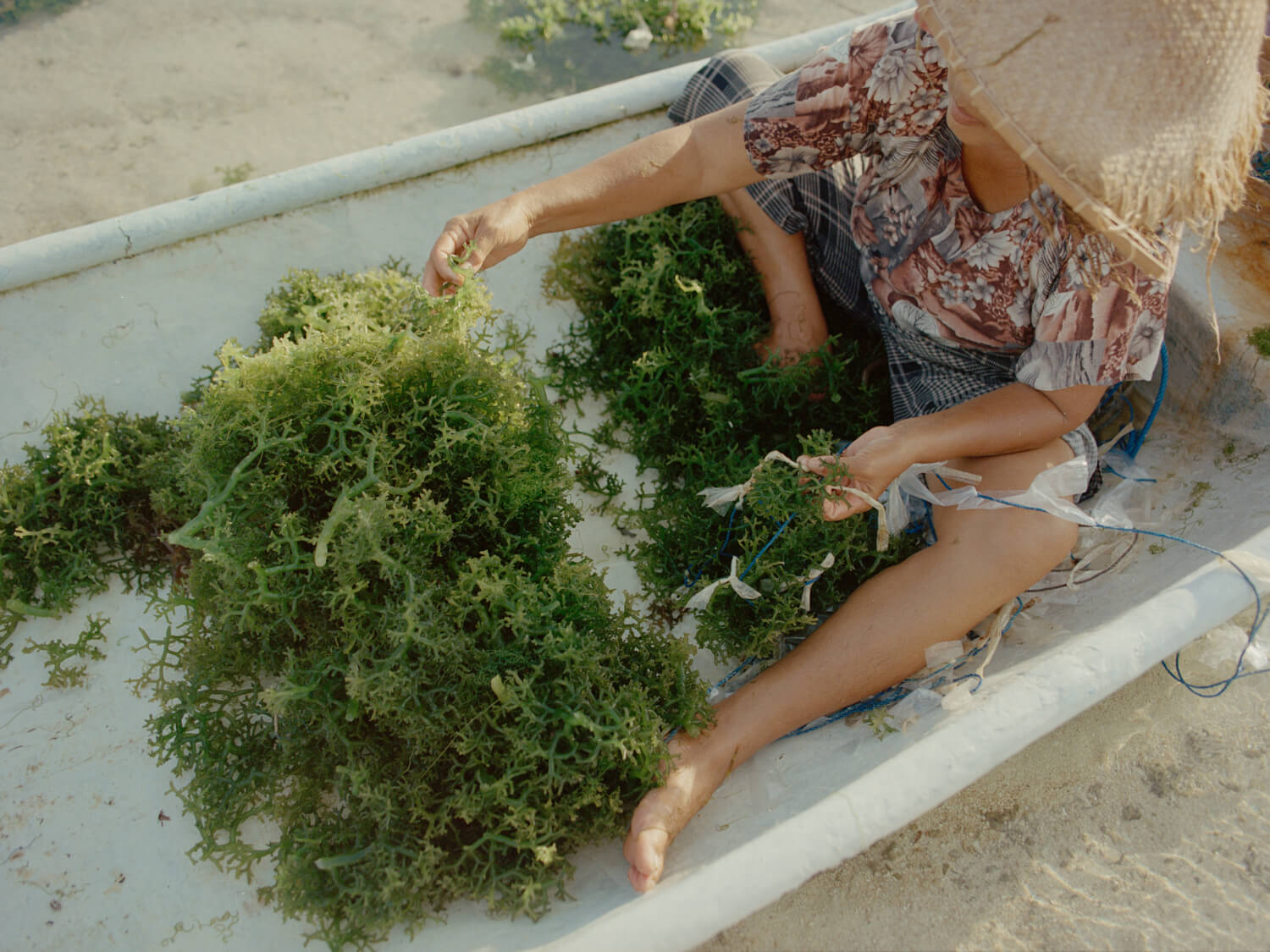
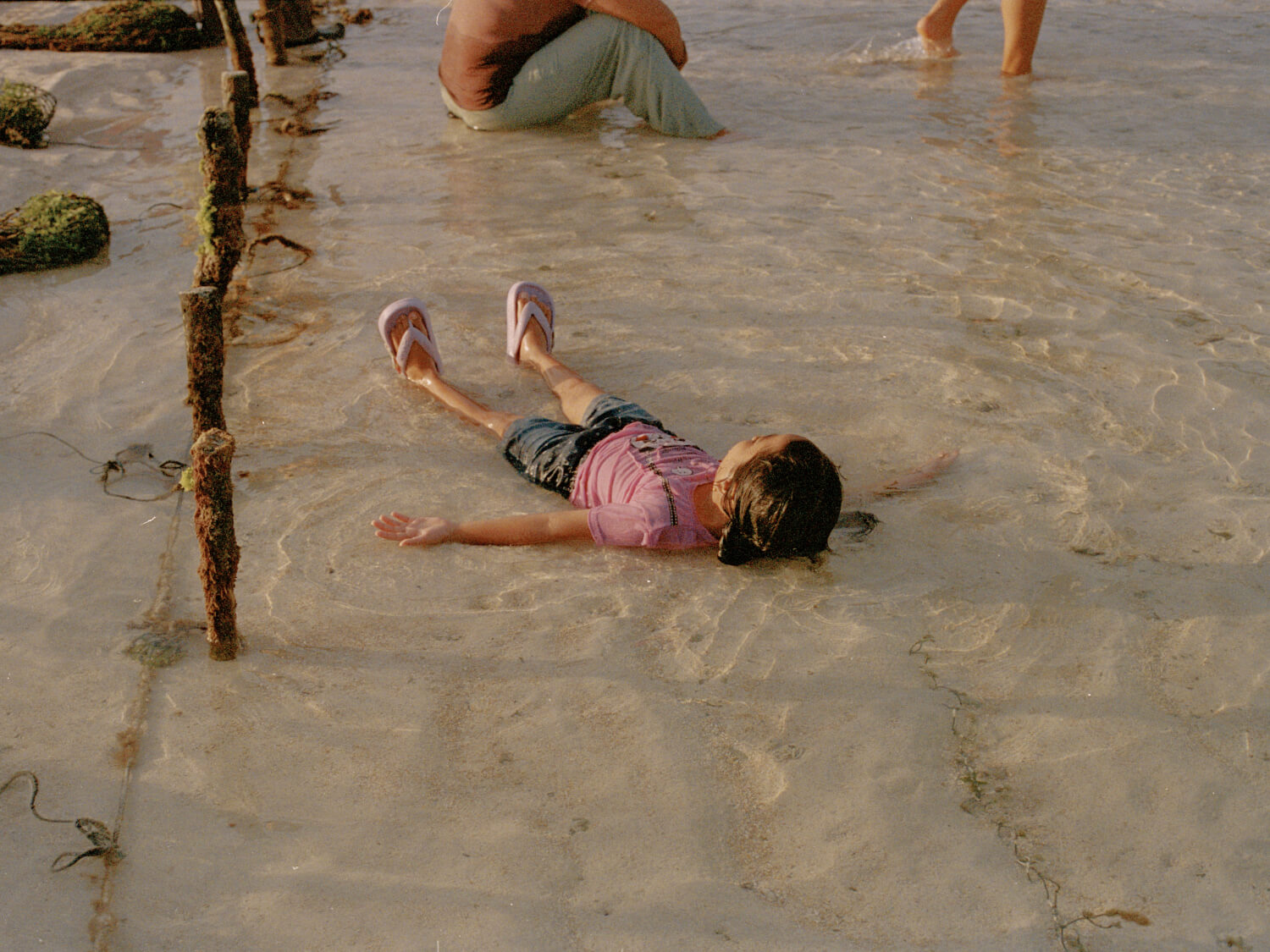
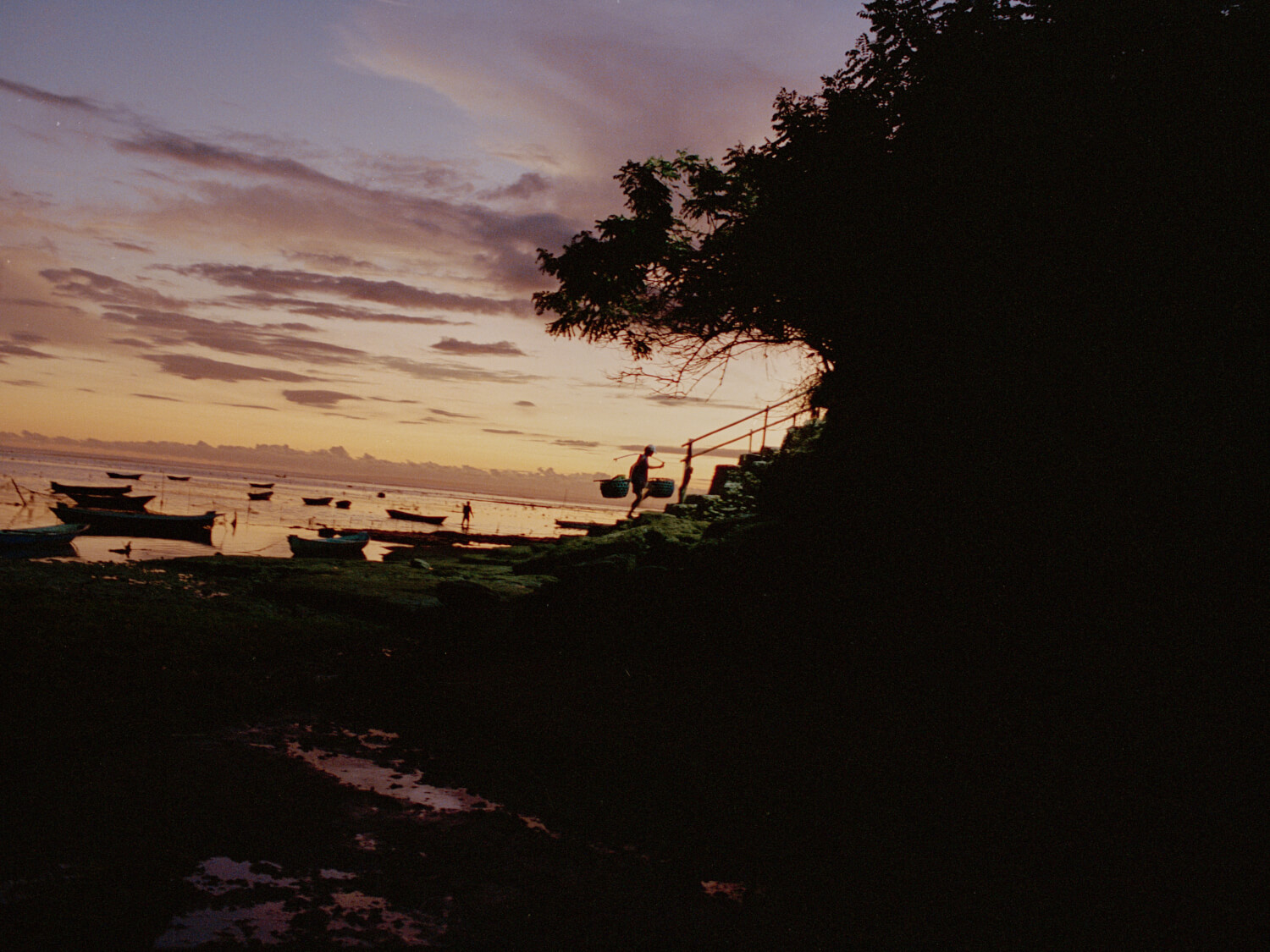
Rachele Daminelli
Italian photographer focused on relationship with mother earth, animals and all living beings.
Her clients include Atmos, Marsèll, SSENSE, Sali&Tabacchi Journal, Konfekt Magazine, Kappa, Rivista Undici, Alla Carta, Fabiana Filippi, Simona Vanth, Luisa Via Roma, C41 Magazine, RETROSUPERFUTURE, Furla.
